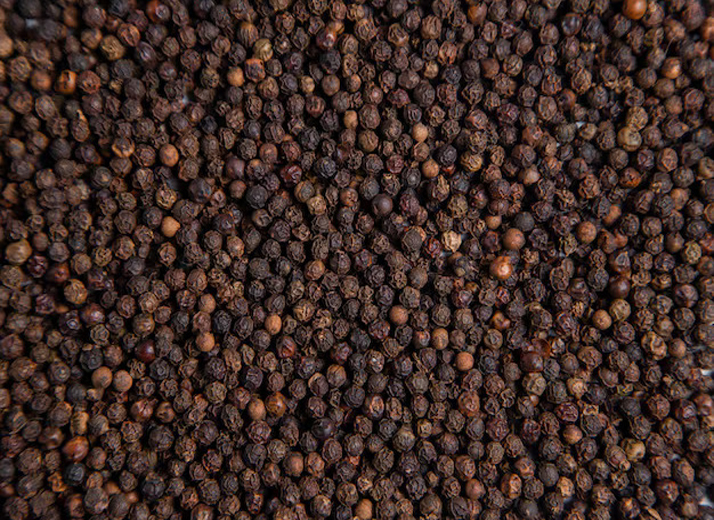Product
Black Pepper

Send an Enquiry
Black pepper, known as the "King of Spices," is one of the most widely used and traded spices in the world. It is derived from the dried unripe berries of the Piper nigrum plant, which is native to the Malabar Coast of India but is now cultivated in tropical regions worldwide, especially in countries like Vietnam, Indonesia, Brazil, and Sri Lanka. The berries, commonly called peppercorns, are harvested when they are still green and then sun-dried until they turn black and wrinkled. The pungent flavor and aroma of black pepper come primarily from the compound piperine, which also contributes to its medicinal value. Black pepper is extensively used in global cuisines to enhance flavor, adding both heat and depth to savory dishes. Beyond culinary uses, it has been used in traditional medicine for its digestive, antioxidant, anti-inflammatory, and antibacterial properties. It is believed to stimulate the appetite, aid in nutrient absorption, and support respiratory health. In the spice trade, black pepper is graded based on size, density, and quality, with Tellicherry and Malabar varieties being especially prized. Proper storage in airtight containers, away from light and moisture, is essential to maintain its aroma and potency. As a staple spice and a key export product, black pepper continues to hold immense economic, culinary, and therapeutic importance around the globe.
Health Benefits of Black Pepper- Prevents Any Sort of Cancer
- Good for Digestion
- Prevents Constipation
- Treats Skin Problems
- Good for Your Hair
- Aids in Weight Loss
- Treats Depression
- Helps in Treating Respiratory Diseases
